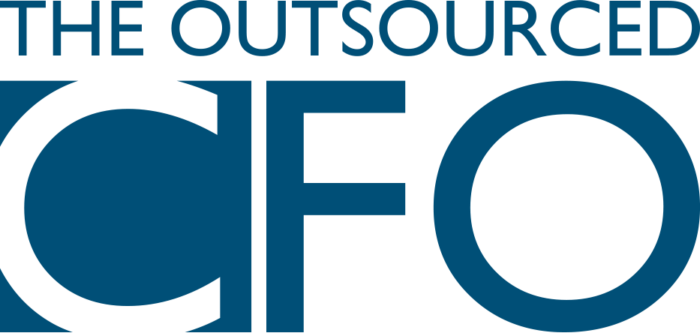
End of another calendar year – a time for reflection
- 1. Why are you doing this?
This is probably the thing that is foremost on your mind. As a business owner you dedicate a lot of time to the business and its people and in the process make many sacrifices for the greater good. When you are spending time with your family over Christmas you could be wondering whether it is all worth it, especially when some customers have taken the opportunity not to pay you.
With these thoughts going through your mind it can be difficult to focus on the bigger picture. More importantly, you need to know what the bigger picture is! To keep the support of your family you need to be living that vision because they are also working towards that goal and they need to feel valued. Sometimes this can get lost, but it is extremely important. You may find this a good opportunity to reflect on your vision and mission and get clarity around what you are trying to achieve and revitalise the people around you, so they can support you in the year ahead.
- 2. Is your business sale ready
You might respond to that question that your business is not for sale. I would argue that depends on price, and if you were to get that offer do you have the structure that would allow you to walk away and the business to carry on. Your business is a significant asset which generates cashflow for you or for someone else if they were to acquire it.
There are a few key elements to building a business asset. First is a pipeline, is there a structure that is consistently generating leads and new customers. Do you have account management plans to grow and retain existing customers? Do you have the people and processes in your business so that it can operate independently without you being involved? Are your financials in good order and in line with common accounting practises?
- 3. Are you surrounded by the right people?
If you want something done, do you always feel that the only way to get it done is to do it yourself? You might be a control freak, but this is largely due to not having the trust in the people around you to get the job done. When you started your business it was about finding people who could do the job just as well as yourself. To grow your business, you need people who are experts in their field, who can do their jobs far better than you would ever have dreamt of. This means defining the roles and structure you need and then hiring people with those specific skills who are specialists in their field. When you hire these people, your organisation is now a vehicle for them to grow and develop, and as they do your organisation grows. With the right people you just have to set the tone and build the culture.
- 4. How will your business grow?
There are very few businesses who don’t have growth aspirations and some kind of growth target, but sometimes it can be unclear how that will be achieved. Depending on the stage of the growth cycle you are in, you might be pushing forward with more of the same, but have you got a marketing plan and budget to drive those increased sales. In an established market, have you looked at all opportunities to increase your sales to existing customers by offering them more or removing some of their pain points? Have you looked at all opportunities to offer more services and possibly partnering with or acquiring a business that already has the structure in place to provide those services? Having firm plans around how you will achieve growth will go a long way towards helping you achieve those targets.
- 5. Do you have strategies to mitigate your key risks?
When you look back at the year just gone, the results might be pleasing but in achieving those results have you dodged a bullet or two. Will you be so lucky next time? Whether you put this down to good planning or good fortune, with another year of knowledge about your market under your belt you might want to think about the things that could have happened which may have made your year not quite as good. Recognising these risks will mean that you can put plans in place to mitigate these and secure your income streams. The measures could be as simple as reviewing your terms of business, getting some commercial legal advice, training for staff, but in doing so you reduce the chance of losing revenue and profits.
- 6. How could you improve cashflow?
Regardless of how well the business is going, knowing that you will have the cash in available to meet payroll and tax obligations plays on the mind of nearly every small to medium sized business owner.
There are probably 2 key factors contributing to the concern over cash. The first is customers who don’t pay. When you look at payroll, employees are paid now for the work they do now, but you get paid by your customer later. So, your business has become a vehicle for funding a payroll, as if you didn’t realise. Are there opportunities to build closer relationships with your customer to get better payment terms. A more strategic discussion might get you further than the accounts receivable officer calling them to say their invoice is overdue.
The second element is that most businesses are seasonal or have seasonal aspects to them which means revenue is more some months than others. Unfortunately, payroll doesn’t change month to month which causes some challenges in those leaner months. January is commonly one of those lean months so I’m sure you would understand. So, what can you do to balance this out? Software companies introduced SaaS which meant they have a monthly subscription which removes the seasonality. Is there some element of your business that could use a similar model, like service and support? What other options do you have to do things differently?
These are six things that I think will be on the minds of many small business owners over Christmas. Whilst this may be the case, Christmas is a time to be open and get close to your loved ones who have supported you through your journey and show your appreciation for that support. They, more than anyone, are the people who will provide you with the energy to go forward and take on the new year ahead. They are also the people who may be able to help manage your concerns.
The month of February is probably the most common month to hold a Strategic planning meeting so with all those fresh thoughts you can start the discussion around implementing all the things you thought about over Christmas.
ABOUT BRIAN DOUGHTY
Brian Doughty is founder of the outsourced CFO which provides part-time, CFO services for small to medium sized businesses. Brian’s experience in large corporates and small business is unique and has enabled him to develop a simple to understand set of tools which will help business owners engage staff, monitor performance and achieve their goals. For more information about CFO Services, visit www.theoutsourcedcfo.com.au.
